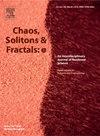A dynamical system as the source of augmentation in a deep learning problem
Q1 Mathematics
引用次数: 8
Abstract
In this work we build a convolutional neural network capable of identifying individual birds by their songs. Since the actual data available from each individual is very limited, we use a dynamical system capable of synthesizing realistic songs, to generate surrogate-training data. The different synthetic songs are the result of integrating the dynamical system with slightly varied parameters. We show that a data set built in this way allows us to train the network to successfully identify the different individuals in our study. In this way, we present a novel way to perform data augmentation using dynamical systems.
一个动态系统作为深度学习问题的增强源
在这项工作中,我们建立了一个卷积神经网络,能够通过它们的歌声来识别单个鸟类。由于每个人的实际数据非常有限,我们使用一个能够合成现实歌曲的动态系统来生成替代训练数据。不同的合成歌曲是动力系统与微小参数变化相结合的结果。我们表明,以这种方式构建的数据集使我们能够训练网络成功地识别我们研究中的不同个体。通过这种方式,我们提出了一种利用动态系统进行数据增强的新方法。
本文章由计算机程序翻译,如有差异,请以英文原文为准。
求助全文
约1分钟内获得全文
求助全文
来源期刊

Chaos, Solitons and Fractals: X
Mathematics-Mathematics (all)
CiteScore
5.00
自引率
0.00%
发文量
15
审稿时长
20 weeks
 求助内容:
求助内容: 应助结果提醒方式:
应助结果提醒方式:


